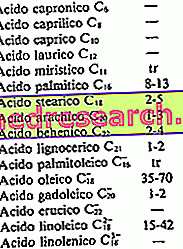Generality
A chronic cough is defined as having a duration of more than eight weeks.

Generally, chronic cough is the symptom of some underlying pathological condition which, therefore, requires the execution of a correct diagnosis in order to undertake a suitable treatment.
The pathologies that can cause chronic cough are many, of different origins and nature.
Unlike with other types of cough (such as, for example, a persistent cough or an irritated cough), symptomatic treatment with antitussive or expectorant drugs may be useless in most cases. The treatment of chronic cough, in fact, is intimately related to the treatment of the underlying pathology from which it originates and the latter, more often than not, requires specific therapies and drugs.
Did you know that ...
Despite what has just been said, according to many experts, chronic cough should be considered as a disease in its own right even when it originates from other diseases.
What is that
What is Chronic Cough?
As mentioned, chronic cough is a type of cough whose duration is more than eight weeks .
If the cough lasts less than eight weeks but more than three, it is more correct to speak of a persistent cough; while if the duration is less than three weeks one speaks more properly of acute cough.
However, in most cases, chronic cough is a symptom of more or less serious pathological conditions, even if - as will be seen in the article - this is not always the case.
Types of Cough
Types of Chronic Cough
Chronic cough - like any other type of cough - can be basically of two types:
- Fat : chronic fat, or productive cough if you prefer, is characterized by the presence of phlegm (sputum) whose characteristics may vary depending on the cause that triggered it.
- Dry : chronic dry cough is a very annoying type of cough in which there is no production of phlegm, so there is no kind of expectoration.
The presence of a certain type of cough rather than another substantially depends on the cause. In this regard it is recalled that, in some cases, chronic cough may initially manifest itself as dry and then gradually evolve towards the fat form.
Causes
What are the causes of Chronic Cough?
The causes that can lead to the appearance of a chronic cough are many, most of which are pathological.
In many cases, chronic cough may represent the evolution of an untreated persistent cough, although always due to underlying diseases. However, among the main causes of chronic cough, we recall:
- Chronic bronchitis and bronchiectasis : chronic bronchitis is an inflammatory disease that affects the bronchi and can lead to the onset of bronchiectasis (chronic and irreversible dilation of the bronchi). However, the latter do not necessarily represent a consequence of chronic bronchitis; in fact, they can also be caused by other factors or even be congenital. In any case, both chronic bronchitis and bronchiectasis can give rise to a chronic fat cough characterized by the production of a thick and dark-colored mucus.
- Chronic Obstructive Pulmonary Disease (COPD): mainly caused by smoking, COPD is a chronic inflammatory disease that involves the bronchial tree and is characterized by the appearance of various symptoms, including a persistent fatty cough that occurs particularly at morning after waking up. This cough, with the progression of the disease, can evolve and become a chronic cough.
- Asthma : asthma is a disease that is mainly characterized by the presence of bronchospasm and wheezing. However, in some cases, asthma may also occur with the appearance of a cough that tends to become chronic over time. Sometimes, the latter could even manifest itself as the only symptom.
- Lung and airway tumors : even malignant neoplastic diseases affecting the respiratory system can cause a persistent cough which tends to turn into chronic cough while varying its characteristics (intensity, presence of sputum, etc.) as the tumor grows and expands.
- Gastroesophageal reflux disease : gastroesophageal reflux disease consists of abnormal and pathological ascent of acidic fluids contained in the stomach towards the esophagus. The presence of this condition can lead to the appearance of a persistent nocturnal cough which tends to become chronic if the disorder is not treated. The symptom is triggered by the irritating action exerted by the gastric fluids during their ascent from the stomach. In these cases, persistent or chronic cough induced by gastroesophageal reflux is more properly defined as reflux cough .
- Exposure to toxic substances : prolonged exposure to toxic and noxious substances can cause diseases of the airways among which chronic cough comes back. An example is given by asbestosis, a serious disease caused by the inhalation of asbestos fibers whose symptomatology may also occur several years after exposure to the substance in question.
- Taking medicines : taking certain types of drugs (such as, for example, ACE inhibitors) can cause the appearance of a persistent cough that subsequently evolves into a chronic cough. In this case, the appearance of the cough is to be considered as a side effect.
- Psychogenic causes : sometimes, although rarely, a chronic cough can also have a psychogenic origin and derive, for example, from conditions of high stress or anxiety (in this case, we speak more properly of psychogenic cough).
Did you know that ...
In some cases, chronic cough may arise as the only manifestation of which no cause can be identified, not even through the execution of analyzes and diagnostic tests.
A similar occurrence tends to occur particularly in children and is called non-specific isolated chronic cough .
Associated symptoms
What symptoms can occur in association with chronic cough?
The possible symptoms associated with chronic cough depend substantially on the cause that originated it. Below are some of them.
Chronic bronchitis and bronchiectasis
In the event that the chronic cough results from chronic bronchitis and / or from the presence of bronchiectasis, it may be accompanied by symptoms such as: asthenia, halitosis, chest pain, hemoptysis or hemoptysis, rales.
For more detailed information, read also: Bronchitis Symptoms and Bronchiectasis Symptoms.
COPD
When chronic cough is caused by COPD, it may be associated with symptoms such as wheezing, shortness of breath, hypercarbia, asthenia, wheezing and haemophysis.
For more information, see also: COPD symptoms.
Asthma
If chronic cough is caused by asthma, the patient who suffers from it may also experience dyspnea, eosinophilia, hypercapnia, pneumothorax and wheezing.
To learn more, see the dedicated article: Symptoms Asthma.
tumors
When chronic cough is caused by the presence of malignant neoplastic diseases, it can be associated with chest pain, hemoptysis, multiple pulmonary nodules, pneumothorax and pleural effusion.
To learn more, read also: Lung Cancer Symptoms.
Gastroesophageal reflux disease
If chronic cough is caused by gastroesophageal reflux disease it can manifest itself in association with retrosternal pain, heartburn, dysphagia, nausea and acid regurgitation.
For more detailed information, also read: Symptoms Gastroesophageal Reflux.
Other symptoms
In addition to what has been said so far, it is good to remember that the persistence of the cough for long periods of time can favor the appearance of hoarseness, irritation and pain in the throat.
When to worry
When to worry and when to go to the doctor?
Generally, a cough that has lasted for more than eight weeks should always arouse some concern in the patient, prompting him to seek medical advice, all the more so if it occurs in association with other symptoms. In fact, as we have seen, a chronic cough is often a sign of various diseases, some of which are decidedly serious.
The doctor's task will therefore be to carry out a correct diagnosis in order to implement the right therapeutic strategy to resolve both chronic cough and the cause that caused it.
Diagnosis
How is a chronic cough diagnosis made?
As repeatedly stated in the article, chronic cough lasts more than eight weeks. Therefore, regardless of the type of cough (fat or dry) that can affect the patient, it is easily diagnosed as chronic when its duration exceeds the aforementioned time interval.
On the other hand, it may be more difficult to identify the cause that gave rise to the symptom covered by the article. To perform a diagnosis of this type, the doctor will first need to get information about the characteristics of the chronic cough that afflicts the patient. In this regard, it may be useful to know:
- The type of chronic cough manifested (fat or dry);
- The time of day when the cough tends to occur (for example, in the morning, in the evening, during the night, or indifferently during the day);
- When present, the characteristics of the sputum (color, consistency, viscosity, etc.).
Naturally, in addition to the aforementioned information, the patient must also inform the doctor of the presence of any other symptom.
In addition to the collection of anamnestic data, the doctor can prescribe the execution of specific analyzes and diagnostic tests in order to make a correct diagnosis, such as, for example, blood tests, sputum analysis when present, allergy tests, spirometry, Chest X-ray, CT scan, MRI and gastroscopy. In addition to this, the doctor can also advise the patient to make specialist visits (for example, pneumologic examination, gastroenterological examination, allergy examination, oncological examination, etc.).
Care
Treatment and Treatment of Chronic Cough
As anticipated, the treatment of chronic cough depends substantially on the treatment of the cause that triggered it.
Therefore, the therapeutic strategy to be adopted to eliminate chronic cough should be established by the doctor according to the cause that gave rise to this symptom: steroidal anti-inflammatory drugs in the presence of bronchitis and COPD; anti-asthmatics in the presence of asthma; antacids and gastroprotectors in case of gastroesophageal reflux disease; chemotherapy, radiotherapy and / or surgical therapy in the presence of lung and airway tumors; etc.
The use of symptomatic treatment, on the other hand, is unlikely to be useful in resolving the problem of chronic cough, since it is not able to cure the underlying disease that caused it.



